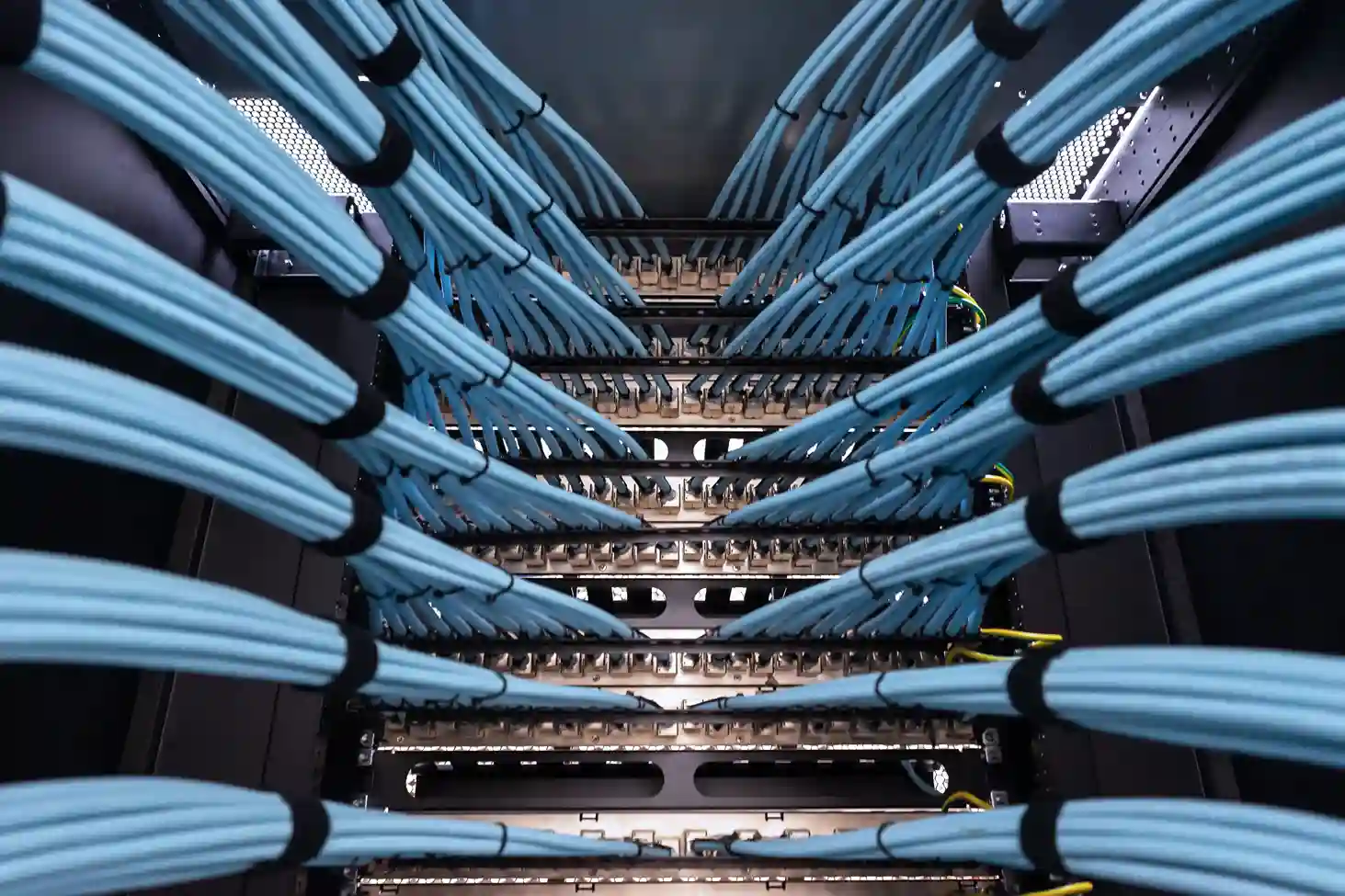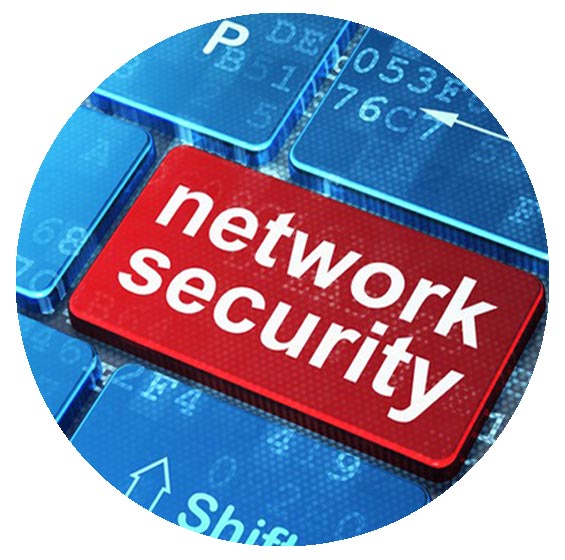Network security: Professional Data Cabling Installation

Network Security: Professional Data Cabling Installation Sydney
“Digital freedom stops where that of users begins… Nowadays, digital evolution must no longer be a customer trade-off between privacy and security. Privacy is not to sell; it’s a valuable asset to protect.”
– Stephane Nappo
Everything related to computers and the Internet has grown tremendously in the 21st Century. The Internet is today’s largest platform that brings nations and communities together in the same light. This development in computer networks and the Internet at large has benefitted mankind. But all good things do have a shadow, and the down point of this network is its uncertainty.
In 1995, only 1% of the world’s population had access to the Internet, compared to today’s 40%. This is an enormous growth, which calls for us to pay closer attention to network security threats that result from this growth.
Network security breaches are extremely common these days and several occur around the world almost every day. Some of these cases are considered minor, with little loss of data or resources, but many of them are considered catastrophic and are disastrous in many aspects. For example, the security breach which we’re all quite familiar with – the 2016 U.S. presidential elections where Russian hackers came into play.
Lest such events happen more often, all of us need to understand network security challenges and their solutions. Therefore, in this article, let’s talk about what Network
security really is.
What is “Network Security”?
According to theSANS Institute, network security is the process of taking preventative measures to protect our network system and personal data from unauthorised access, misuse, malfunction, modification, destruction or improper disclosure. Implementing these measures allows your device programs to perform their permitted functions to their full potential.
Securing a network requires a vital yet quite complex combination of hardware devices, such as routers, firewalls and anti-malware software applications. Government agencies and businesses employ highly skilled information security analysts to implement security plans and constantly monitor the efficiency of these plans.
Why is “Network Security” important?
Network security is one of the most important aspects to consider when working on the Internet. While there is no network immune to attacks, a stable and efficient network security system always attempts to protect your data. A good network security system helps users by reducing the risk of falling victim to data theft and sabotage. Network security helps protect your computer from harmful viruses. It also ensures that shared data is safe. Network security promotes the reliability of your network by preventing possible overlooks through continuous monitoring of suspicious transactions that can sabotage the system.
The past has witnessed many events in which important information of Government and large multinational corporations has been stolen; for example, the famous hacking of Sony Pictures’ system, the hacking of Yahoo.com which compromised the data of 3 billion users, and so on. The most recent was Russian hackers meddling in US presidential elections which were held in 2016.
Hackers are ceaselessly searching for new vulnerabilities to abuse. In this age when systems are not anchored, data about associations and people, and even our legislature is in danger of being uncovered or utilized against us. So, data security experts create and execute safety efforts to ensure computer networks are safe and secure.
As technology advances, it has paved the way for serious network security threats. This has made the whole digital world to be more vulnerable. A lot of new security threats have emerged; it is important to keep yourself up to date with such network security threats to be on the safe side.
RECEIVE BUSINESS SOLUTION VALUED AT $1,190 FREE
Book your 100% FREE no-obligation 30-Minute Business Solution Session, that will boost your business productivity, reduce ICT related cost and risk of an outage.
BOOK 30 MINUTES FREE BUSINESS SOLUTION
Network Security Threats of the 21st Century
1. Worms and Viruses
Though these have been around for quite a while now, viruses are nowadays advanced and hard to deal with. Every day, new virus threats are emerging. These malicious programs can cause serious damage to essential network system data, making it unusable. Viruses and worms serve as the starting point for sophisticated cyber-attacks.

Professional Data Cabling installation Sydney

Professional Data Cabling installation Sydney
2. Drive-by Download
This is an attack wherein malicious codes are downloaded from an Internet site using an app or a web browser. If your network or system security is weak, these malicious codes can compromise your data. It is therefore important to make sure that in addition to not visiting un-trusted sites, you should keep your browsers updated all the time to avoid drive-by download attacks.cyber-attacks.
3. Phishing Attacks
This is a form of social engineering attack wherein an attacker aims at getting crucial information such as credit card details, login passwords, etc. from several users. A phishing attack seems to come from a trusted source but the fact is that the attackers usually impersonate a reputable site, banking institutions or other sources to gain user trust and then perform the stealing.
You should be vigilant in order to deal with phishing attacks. Though some of these attacks are sophisticated and it becomes hard for most people to avoid, it is important for you to ensure that you are cautious of what you click on the web.
4. APT Threats
APT or “Advanced Persistent Threats” is a kind of attack where an attacker places code on a target system and allows it to remain there undetected for quite a while. The APT sits quietly into that system stealing information. Such an attack can compromise all the information in a system as well as the data from the connected network systems.
System administrators should ensure that theyclosely monitor the network system for any suspicious activity such as data loss. They should also ensure that they use special network security software to trap internal attacks.
Some methods to protect the network:
There are various methods to enforce network security including access control, anti-virus and anti-malware software, application security, data loss prevention, VPN, intrusion prevention systems, and so on. However, daily maintenance of computer network is a crucial part of having your systems secured.
The network security threat is a cat and mouse race; new threats are emerging every now and then and therefore IT specialists must keep up to combat these threats. The first step is to remain educated about emerging threats like the ones we have looked at above. The other thing is to make sure that all the network systems and network security tools are kept up to date. In order to prevent the breach of confidentiality and integrity, theft of service, and denial of service you must have reliable network security.
1. Firewall: Firewalls effectively stop any attempt of unauthorized access to a computer.
2. Anti-virus: Detects and defuses a virus.
3. Encryption: Encryption renders data useless without the use of a proper key to unlock it.
4. Authentication: This technique intends to verify the identity of a user based on the credentials stored in his system.
5. Engagement of IT Specialist: By engaging a specialist you can have a security plan built specifically for you business. This plan will put in place risk mitigation and disaster recovery.
Hackers are continuously looking for new vulnerable networks to exploit for personal gains. When networks are vulnerable, information about organizations and individuals and even the government is at risk of being exposed to harmful elements. Therefore, it is important to have proper security measures in place to protect your network.
To Conclude:
Cybersecurity is a shared responsibility and in cyber security the more systems we secure – the more secure we are.
So, what are your views on this? Do let us know!





